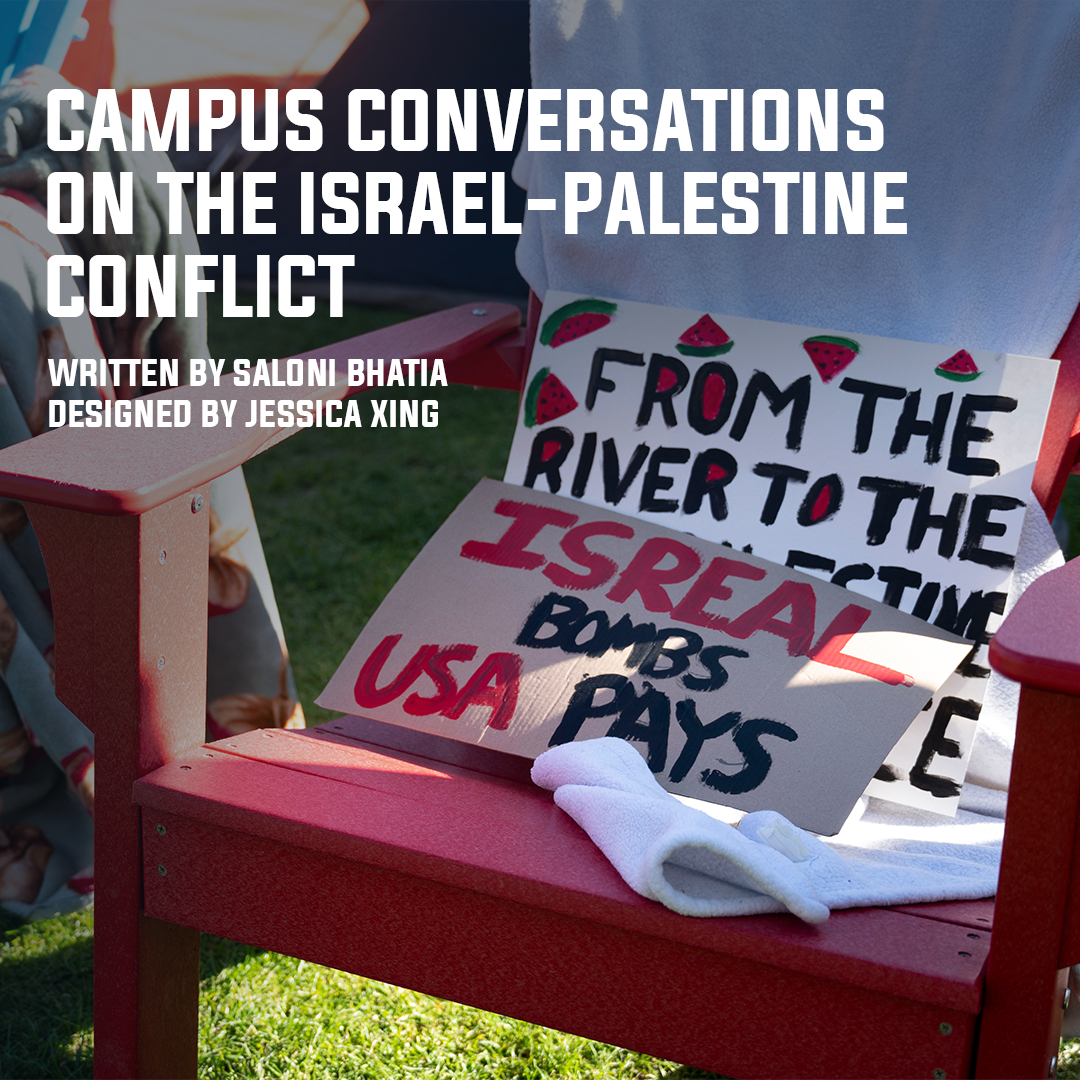
On Oct. 7, 2023, Hamas, a Palestinian nationalist militant group, launched an attack on Israel, killing approximately 1,200 people. Following the attack, Israel declared war against Hamas and since then, the Israel-Palestine conflict has raged on.
Israel and Palestine have had ongoing conflicts dating back to the 19th and 20th centuries. There has been ongoing tension and conflicts with each other based on national identity and territorial disputes. Despite various peace efforts, violence has continued, marked by uprisings and deep-rooted issues, and key issues remain unresolved, such as the distribution of land.
This ongoing conflict has significantly impacted the lives of those living in the region and students across the globe have led protests and fought for peace. However, students are falling under two conflicting sides: pro-Israel and pro-Palestine.
At universities, students have been organizing protests to support Palestine, talking about Israel’s human rights violations and fighting for an end to military occupation.
At Northeastern, pro-Palestinian activists have arranged sit-ins, boycotts and protests against the university for investing in companies that supply weapons to Israel, such as RTX, formerly Raytheon. Similar protests and demonstrations have occurred at colleges and universities all over the country.
Pro-Israel students have also been leading their own demonstrations, promoting solidarity with Israel and emphasizing their narrative of security and Israel’s right to self-defense.
In a display of remembrance, Northeastern Hillel held a vigil to honor the victims of Oct. 7. This vigil served as a call for unity among the Jewish community, reinforcing the importance of standing together.
Gabriella Kislin, the Israel chair of Northeastern Hillel, a Hillel international Israeli representative and the marketing chair of Chabad and schedule coordinator of Huskies for Israel, talked about what the vigil was like.
“[We said] a few prayers including one for mourners, one for those in need of healing and one for those being held in captivity,” said Kislin. “It also included reading the names of all of the hostages that are being held.”
Kislin then spoke about the events the group has hosted.
“We’ve never had any protests. All of our events have been education based or community based,” she said. “We’re here to support each other and our community of Jewish students who are going through a tough time.”
However, events like these can also start debates on the Northeastern campus, highlighting the complexities of the Israeli-Palestine conflict. Many people have different opinions of the origins of the conflict, which raises more debates.
“I think it’s important to not come at it from a place of hostility,” said Kinslin. “I would just say it’s important to just make sure it’s important to listen and understand both sides.”
Students for Justice in Palestine at the Northeastern University School of Law and Jewish Law Students Advocating for Justice at the Northeastern University School of Law did not respond to requests for comment.
Now, it is common to see discussions about free speech, antisemitism and the challenges of political expression in academic settings. Central to this discussion is Zionism, which is defined as Jewish nationalism, and it advocates for the Jewish people’s right to self-determination in their ancestral homeland.
Palestine supporters have been organizing rallies and marches to raise awareness about the crisis in the region. There have also been opportunities for educational events to engage people in dialogue about the complexities of the conflict.
Both sides have also been using social media to spread the word to promote their organizations. For example, Pro-Palestinian students use social media to raise awareness about the Israeli occupation and human rights issues, sharing personal stories and imagery to humanize their experiences.
According to Kislin, pro-Israel students focus on highlighting narratives of security and self-defense, sharing educational resources and testimonials to opposing messages. While it is helpful as many students do use social media to educate themselves on different topics, not everything on social media is accurate, which can cause issues to escalate.
Overall, the war between Israel and Palestine has led to challenging conversations about identity, politics and the complexities of the conflict, compelling students to navigate their personal beliefs while engaging with various perspectives. The protests have heightened the sense of urgency around the issue which has led to promoting deeper discussions about history and human rights.